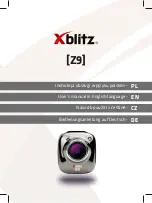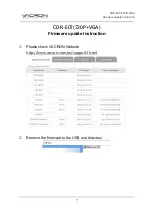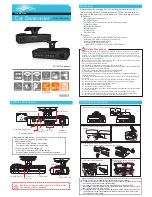
Sequencer
Control
Note
Sample TriggerSequencer mode operation
User-defined Indexes (up to 128)
Triggers/
Image
Frames
1
Specify "1" in [SequencerSetStart], and start TriggerSequencer mode
with index 1.
2
Capture a 2-frame image with the first and second triggers.
3
For the next index, configure index 3 specified in [SequencerSetNext],
and capture an image with the number of frames (number of triggers)
specified in [SequencerFrameNumber].
Proceed to sequence from index 4 to index 2 to index 1.
In addition to repeating multiple conditions as in the above example, you can specify
"0" (which indicates the end of TriggerSequencer mode) in [SequencerSetNext] of
index 2, and specify the number of repetitions in [SequencerRepetition].
Command Sequencer mode
• The same index table will be executed for subsequent triggers unless the
[CommandSequencerIndex] value is changed.
• [SequencerFrameNumber] and [SequencerSetNext] cannot be used in
CommandSequencer mode.
・
・
・
Index1
Index2
Index3
Index
Selector
(MUX)
Command
Sequencer
Index
2
ROI1
Exposure1
Gain1
Binning1
LUT1
ROI2
Exposure2
Gain2
Binning2
LUT2
ROI128
Exposure128
Gain128
Binning128
LUT128
As with TriggerSequencer mode, you can define up to 128 indexes beforehand
in this mode. Set [SequencerCommandIndex] to point to one of your pre-
configured indexes. This index will be executed on each trigger, until it is
changed to point to a different index, typically by your vision application. In
this way, Command Sequencer mode allows you to programmatically adjust
your sequence in response to image analysis or input from other sensors.
Note
SP-45000M-CXP4A/SP-45000C-CXP4A
- 52 -
















































